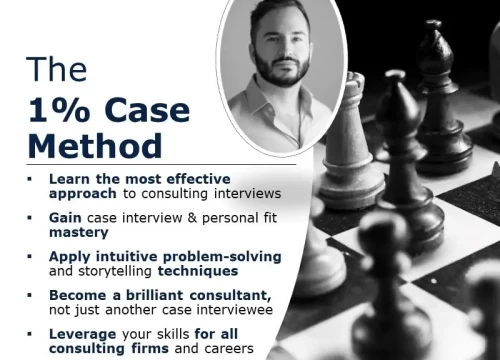Hi, I am puzzled bout this topic as the advice I've found on internet widely differs. Some experts say 3 minutes to present the structure is optimal, while some say 5 minutes is suggested. Also, some experts suggest a relatively light structure. In one of the "strong performance" sample case interview I've seen, there were only 3 buckets, and 2 key questions underlying each bucket. On the other hand, I've seen experts suggesting going 2 or 3 levels deep in the issue tree and having a comprehensive structure with several hypotheses mentioned is crucial, especially in order to stand out from other applicants.
I'm just wondering which advice is more practical? On one hand, having a light structure with strong business rationale and logic might be easy to understand and follow, and the structure could be clean and rigid. On the other hand, having a thorough and detailed case structure might impress the interviewer, but would take longer time and the interviewer might feel such a detailed structure is unecessary and redundant.
Appreciate your thoughts on this.
(editiert)


